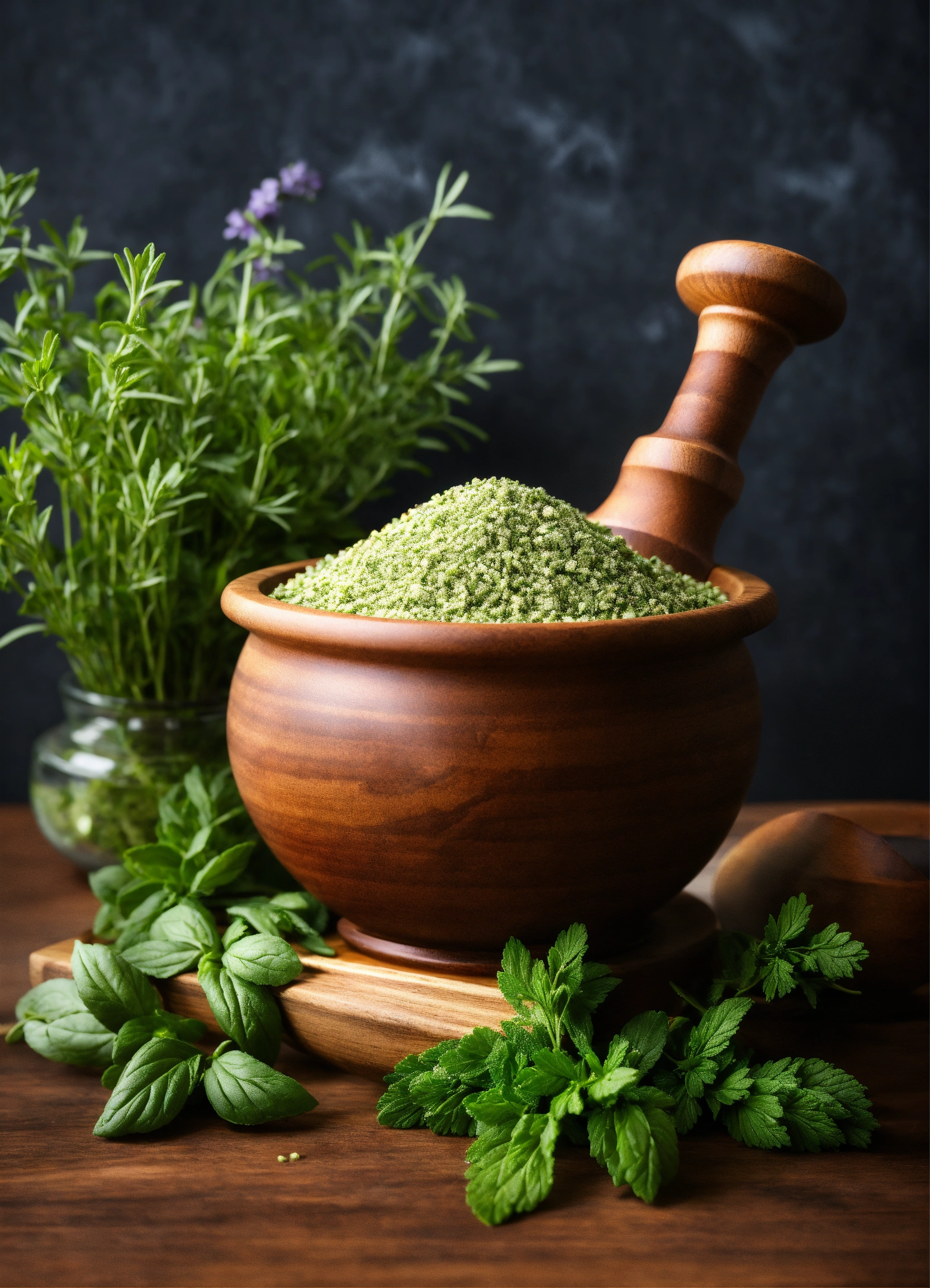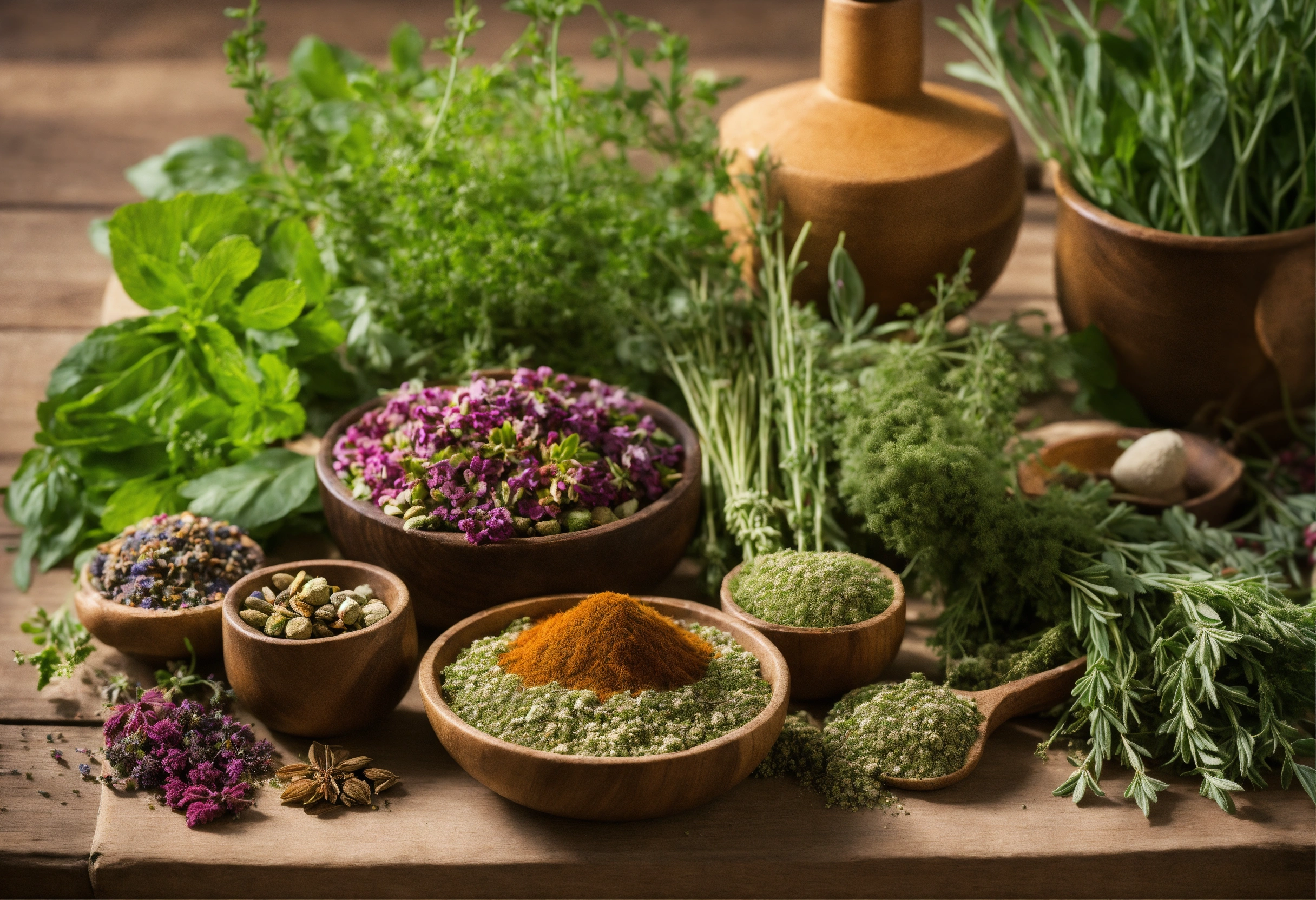Herbal Remedies
Unlocking the Secrets of Herbal Remedies

Herbal remedies have been used for centuries to treat a variety of ailments and boost overall well-being. From ancient civilizations to modern-day herbalists, the power of plants and herbs have been harnessed to provide natural healing properties. While some may view herbal remedies as an alternative to conventional medicine, the truth is that many medications and treatments are derived from plants and herbs.
Unlocking the secrets of herbal remedies involves understanding the unique properties and benefits of different plants and herbs. Each herb contains a combination of active compounds that can have a positive impact on our health when used properly. For example, ginger has anti-inflammatory properties that can help relieve pain and reduce inflammation, while chamomile has calming effects that can promote relaxation and improve sleep.
One of the key benefits of herbal remedies is their ability to treat the root cause of an ailment, rather than just masking symptoms. Many pharmaceutical medications only address the symptoms of a condition, leading to potential side effects and long-term health issues. Herbal remedies, on the other hand, can help the body heal itself by supporting its natural processes and balance. For example, herbs like echinacea and elderberry can boost the immune system and help the body fight off infections.
Another advantage of herbal remedies is their versatility and accessibility. Many herbs can be grown in your own backyard or purchased at a local health food store or online. This makes herbal remedies a cost-effective and sustainable option for those looking to improve their health naturally.
However, it is important to note that not all herbal remedies are safe or effective for everyone. Some herbs can interact with medications or have adverse effects on certain individuals. It is always best to consult with a healthcare provider or herbalist before starting any new herbal remedy regimen.
In conclusion, unlocking the secrets of herbal remedies is a journey that requires knowledge, experimentation, and caution. By understanding the unique properties of different plants and herbs, we can harness the power of nature to support our health and well-being. Whether you are looking to alleviate a specific ailment or simply improve your overall health, exploring herbal remedies can be a rewarding and transformative experience.
Herbal Remedies
Herbal Remedies: A Natural Approach to Wellness and Healing

Herbal remedies have been used for centuries by people all over the world as a natural approach to wellness and healing. These remedies, which are derived from plants and herbs, have been known to have various health benefits and have been used to treat a wide range of ailments, from simple colds and headaches to more serious conditions such as diabetes and heart disease.
One of the main benefits of herbal remedies is that they are natural and do not contain any artificial chemicals or additives, making them a safer and often more gentle alternative to conventional medication. Many people prefer to use herbal remedies because they are believed to have fewer side effects and are often more affordable than prescription drugs.
There are a wide variety of herbs and plants that can be used as herbal remedies, each with their own unique properties and benefits. For example, ginger is known for its anti-inflammatory properties and can be used to treat conditions such as arthritis and muscle pain. Echinacea is often used to boost the immune system and can help prevent and treat colds and flu. Turmeric, with its powerful anti-inflammatory and antioxidant properties, has been used to treat conditions such as arthritis, heart disease, and even cancer.
Herbal remedies can be taken in many forms, including teas, tinctures, capsules, and creams. It is important to consult with a healthcare professional or herbalist before using any herbal remedy, as some herbs can interact with medications or have adverse effects on certain individuals.
In addition to their medicinal properties, many herbs and plants used in herbal remedies also contain vitamins, minerals, and other nutrients that can help promote overall health and well-being. For example, chamomile tea is known for its calming and soothing properties, making it a popular remedy for stress and anxiety. Turmeric is also a potent antioxidant and can help protect the body from free radicals and oxidative stress.
Overall, herbal remedies offer a natural and effective approach to maintaining health and treating various ailments. While they may not be a cure-all, many people have found relief and improvement in their health by incorporating herbal remedies into their daily routine. With the guidance of a healthcare professional, herbal remedies can be a safe and beneficial addition to any wellness regimen.
Herbal Remedies
Ancient Wisdom, Modern Health: The Science Behind Herbal Remedies

Throughout history, humanity has turned to nature for healing and health. Ancient civilizations from around the world have utilized herbs and plants to treat a wide range of ailments and diseases. And today, the wisdom of our ancestors continues to inform modern healthcare and wellness practices.
The use of herbal remedies can be traced back thousands of years, with evidence of medicinal plants being used in ancient China, India, Egypt, Greece, and beyond. These early healers discovered the healing properties of various herbs through trial and error, observation, and a deep understanding of the natural world. They passed down their knowledge through oral traditions, written texts, and cultural practices.
In recent years, scientific research has begun to validate the efficacy of many herbal remedies that have been used for centuries. Modern studies have confirmed that many plants contain bioactive compounds that have medicinal properties. For example, the herb echinacea has been shown to boost the immune system and fight off infections, while ginger has anti-inflammatory and digestive benefits.
One of the key advantages of herbal remedies is that they often have fewer side effects compared to pharmaceutical drugs. Many medications come with a long list of potential side effects, while herbal remedies tend to be gentler on the body. This is because plants contain a complex mix of compounds that work in synergy, unlike synthetic drugs that isolate a single active ingredient.
Herbal remedies can be used for a wide range of health issues, from chronic conditions like arthritis and diabetes to common ailments like colds and headaches. They can be taken in various forms, including teas, capsules, tinctures, and creams. And with the rise of alternative medicine and natural health practices, more and more people are turning to herbal remedies as a complement or alternative to conventional treatments.
However, it is important to remember that not all herbal remedies are safe or effective. Some herbs can interact with medications or have toxic effects if not used properly. It is crucial to consult with a healthcare provider or herbalist before starting any herbal treatment, especially if you are pregnant, nursing, or have underlying health conditions.
In conclusion, the wisdom of our ancestors lives on through the use of herbal remedies for modern health and wellness. By harnessing the power of plants and natural compounds, we can tap into ancient knowledge to support our wellbeing in a safe and effective way. Whether you are looking to boost your immune system, relieve stress, or improve your digestion, there is likely an herbal remedy that can help you on your journey to optimal health.
Herbal Remedies
Healing From the Earth: The Benefits of Herbal Remedies

Throughout human history, plants and herbs have been used as natural remedies to heal various ailments and conditions. Traditional medicine systems such as Ayurveda, Traditional Chinese Medicine, and Native American healing practices have long utilized the healing properties of herbs to promote overall health and well-being.
Herbal remedies are derived from the leaves, flowers, roots, and seeds of plants and are believed to contain potent medicinal properties that can help alleviate symptoms and promote healing. These natural remedies are often preferred by individuals seeking alternatives to conventional pharmaceutical drugs, which can be associated with side effects and long-term health risks.
One of the key benefits of herbal remedies is their holistic approach to healing. Rather than simply treating symptoms, herbs work to strengthen the body’s natural defenses and promote overall balance and harmony. Many herbs possess anti-inflammatory, antiseptic, and analgesic properties that can help alleviate pain, reduce inflammation, and fight off infections.
Additionally, herbal remedies are often more affordable and accessible than prescription medications, making them a popular choice for individuals looking to save money on healthcare costs. Many herbs can be easily grown at home or purchased at local health food stores, making them a convenient option for those looking to take control of their own health.
Some commonly used herbal remedies include:
– Echinacea: known for its immune-boosting properties, echinacea is often used to prevent and treat colds and flu
– Ginger: a popular remedy for digestive issues, ginger can help alleviate nausea, indigestion, and bloating
– Turmeric: rich in anti-inflammatory compounds, turmeric is often used to reduce pain and inflammation in conditions such as arthritis and joint pain
– Chamomile: a calming herb, chamomile is often used to promote relaxation and sleep
While herbal remedies can be highly effective in promoting healing, it is important to consult with a healthcare provider before using any new herbs or supplements, especially if you are pregnant, nursing, or taking medications. Some herbs can interact with certain medications and may not be safe for everyone.
In conclusion, herbal remedies offer a natural and holistic approach to healing that can be beneficial for a wide range of health conditions. By tapping into the healing power of plants and herbs, individuals can promote overall health and well-being while reducing their reliance on conventional pharmaceutical drugs. Whether used alone or in conjunction with other treatments, herbal remedies have the potential to support the body’s innate ability to heal itself and promote optimal wellness.
